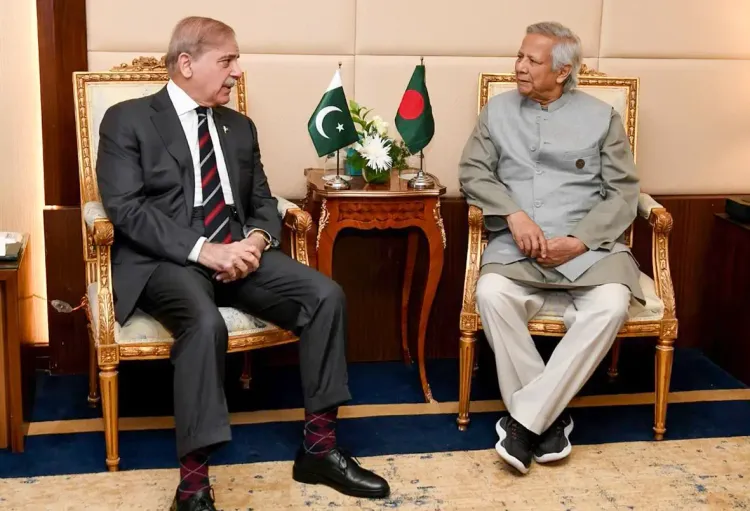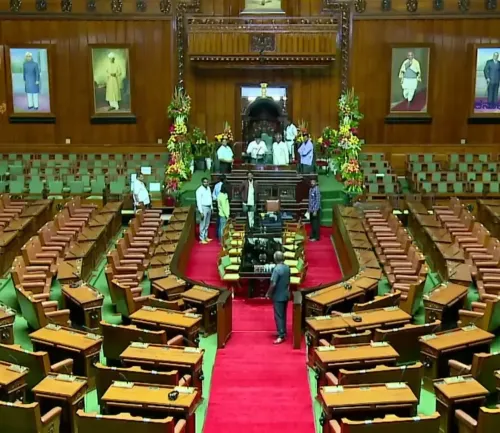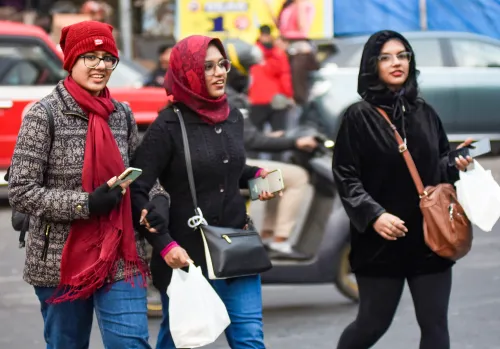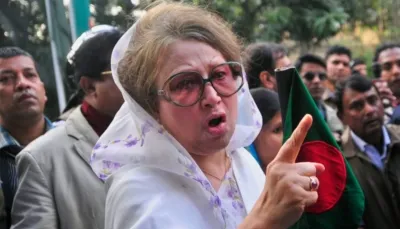Is Pakistan’s hypocrisy exposed: Why is ISI breeding radical Islamists in Bangladesh while suppressing them at home?

Synopsis
Key Takeaways
- Pakistan's ban on TLP reflects internal struggles against radicalism.
- ISI is actively promoting radical elements in Bangladesh.
- The IRA may represent a new threat to regional stability.
- Pakistan's actions highlight a stark hypocrisy.
- Women’s rights may be severely impacted by these developments.
New Delhi, Oct 24 (NationPress) The ban on Tehreek-e-Labbaik Pakistan (TLP) reveals the significant challenges Pakistan is encountering in managing radical factions promoting a religious agenda within its borders.
The Gaza Solidarity March, organized by TLP members, escalated into severe violence, especially in Muridke, leading to numerous fatalities.
Initially established by the Pakistani state, the TLP has increasingly resorted to violence in its quest to enforce a religious agenda.
Various factions in Pakistan, including the TLP and Tehreek-e-Taliban, Pakistan (TTP), have turned against the state, asserting that Islamabad is not adequately pursuing its goal of transforming the country into an Islamic nation.
In recent months, groups such as Hizb-ut-Tahrir (HuT) have openly criticized Pakistan’s stance on the Gaza situation.
Pakistan's alignment with Washington regarding Gaza has been met with disapproval from these radical factions.
Analysts highlight the irony in Pakistan’s approach to radical groups, as it claims to uphold a zero-tolerance policy against those advocating for an Islamic state governed by Sharia law.
While there is an ongoing crackdown on such factions within Pakistan, Islamabad seems to promote the establishment of an Islamic state in Bangladesh, encouraging adherence to Sharia Law.
Through the Jamaat-e-Islami and its associate Muhammad Yunus, the ISI is attempting to impose stricter religious laws that demand more rigorous compliance with Islam.
Following Sheikh Hasina's removal and Yunus's appointment as caretaker of the interim government, it became evident that the Jamaat would dictate policy.
The Jamaat directed Yunus to open Bangladesh to Pakistan, enabling the ISI to exert influence over the country.
In Bangladesh, the ISI and Jamaat are working to alter the social structure, emphasizing radical elements that target minorities and strive for the implementation of Sharia Law.
In Pakistan, the army's response to radical groups defying the state has been brutal, with instances of genocide to eradicate these elements.
While the crackdown in Pakistan aims to restore state authority, the strategy in Bangladesh diverges significantly.
At Pakistan's urging, the interim government in Bangladesh has granted radical factions a free rein to advance their Islamist agenda. Although these groups have infiltrated many institutions, some resistance remains from the army and DGFI.
Recent court rulings directing the arrest of several army officers accused of atrocities during Hasina's regime indicate a sustained effort to undermine the institution.
Pakistan understands that transforming Bangladesh into an Islamic state will require the army and DGFI to align with the establishment. Due to resistance from both institutions, the Jamaat has resolved to dismantle them.
Moreover, the ISI is currently training over 8,000 individuals at various centers throughout Bangladesh to prepare them for the envisioned Islamic Revolutionary Army (IRA).
This new institution aims to replace the army, tasked with enforcing strict Islamic laws and suppressing dissent.
The IRA is expected to restrict women’s rights and emulate the Iranian model in Bangladesh. These developments clearly indicate that Bangladesh is gradually transitioning into an Islamic state, which poses significant challenges for India.
This situation starkly illustrates Pakistan's hypocrisy; it seeks to destabilize a nation that was once progressing while simultaneously suppressing all groups advocating for an Islamic state within its own borders.










